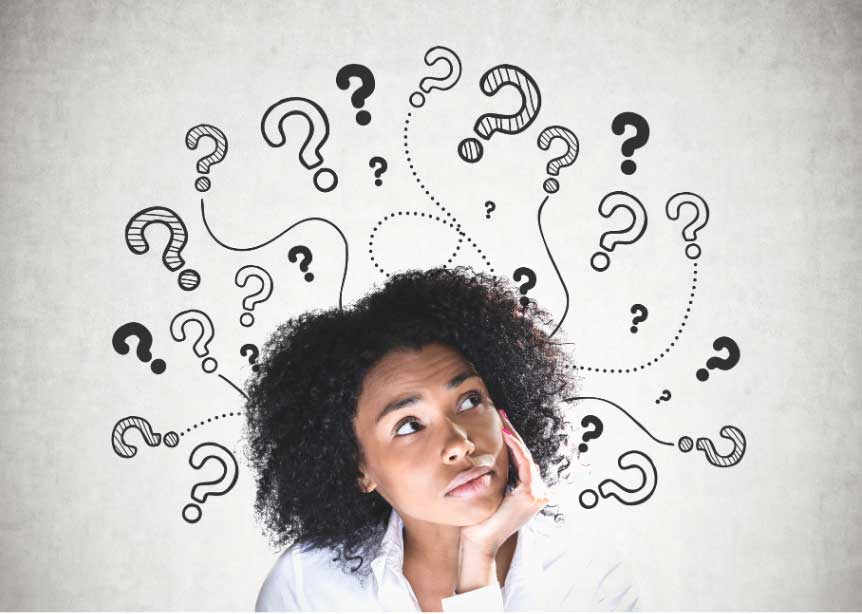
Why Diets Fail You
Why Diets Fail You
Here is the transcript to follow along with the video, Why Diets Fail You.
Hello, hello, hello, hello. Hi everyone, this is Kim McLaughlin, and we are live, this is food freedom live, I am so glad to be with you. I’ve got lots of notes, I’ve got things to talk about, we are going to talk about all things having to do with food freedom, because I know that’s why you’re here. And that’s what we want to get into. What we’re doing is this is over three days, we’re going live at 11 o’clock, it is a good time. So if you’re east coast, that would be three hours later. And it’s kind of a nice time in the middle of the day. So I’m glad to be here with you. Those of you who signed up for VIP, I hope you’ve got your playbook out. Here it is right here. Here’s the playbook I had it printed. And you can actually follow along in the PDF version on your computer. So for those of you who don’t know or don’t, didn’t notice that we’re offering a VIP upgrade for those of you that are interested, it’s $9 people like it’s super affordable. It is what is it, it’s like 18 pages of information that you can use to help you get food freedom. And it’s also got, so it’s got the playbook. And then it’s also got success skills. So it’s got this opportunity to learn about overeating, learn about what doesn’t work, but then also start focusing on how you’re going to release into something new. I’m very proud of it, I’m pleased with it. So go on the VIP, I will put the link at the end in the chat, or at the end in the comments so that you can get the playbook. If you’re interested. I don’t know why you wouldn’t. So you get the playbook, you get the success, success skills. And then thirdly, you get an hour with me, it’s next week, we’re going to do an hour q&a, you get to talk to me about what’s going on with you, you get to share with other people what’s going on, and we’re gonna have a really good conversation. So sign up for the VIP. It’s really valuable and good. And like I said, I’m going to put it in the comments below so you can get it later. So that is where we’re starting. We’re talking three days about food freedom. Today, we’re into diet mindset. And it’s the starting spot that I like to go to, is to talk about diet mindset, because it is the place that really kind of we got to get clear on what it means to us. And why do you diet because when people want food freedom, what they tell me is I want to lose weight. I don’t like how I look, I hate my body, people have used the H word they hate word that they hate their body. And they also tell me they hate themselves. And that just makes me feel I feel sad when I hear that because there literally is a solution away out of that a way of feeling horrible about yourself. But first, we’ve got to start talking about the diet mindset and why? Why diets don’t work. And that is a radical concept to say that diets don’t work. And I’m going to give you some Let me see. Let me get in here. So first I’m going to talk about so what I want to first go over with is the what the stats are about dieting, get this diets. The facts are that it’s predicted that the global market for weight loss industry will grow from 254.9, almost $255 billion in 2021 to 377 billion by 2026. So we’re talking what four years from now, it’s going to increase the the dieting industry weight loss industry will grow 120 billion by 120 billion with a B, that’s a lot of money. So I want you to think about that. There’s this investment. There’s this investment you guys from the weight loss industry, for us to buy their products. It’s not all it’s not about us and what really works and what makes us feel good. It’s about getting us to buy these products, these services, this type of food, and then making us feel bad when it doesn’t work. Because what we know is that when we die it you guys know this. When you die it you end up regaining the weight. It’s a fact we know this. We all know this from our personal experiences and we know this from what we what the stats say
Kim McLaughlin 05:02
I think it’s what 90% gain weight back 90%, gain the weight back, and then some. And you and I know that from our experience. So think about the diet mindset and think about how dieting has really taken you away from what works for you. Okay? The thing I forgot, I’m starting looking at my notes, and I’m so excited to talk to you that I forgot to tell you that I’m going to have a freebie there is a freebie for those of you that attend live, I’m going to give up five books, I have my books, the feed your soul, nourish your life book, I’m sorry, I didn’t bring it up here to show you. But it’s the book, I’ll send it out to you for free. no cost to you. I’ll put a link in the comments. If you send me an email at info at feed your soul unlimited.com The first five people over the next three days the first five people that email me they get a book. And all I’ll do is get your address and we’ll send it straight on out to you. Five people get a feed your soul nurture life book, it’s it’s really the way out. It’s an in depth look at how to get freedom with food. So I forgot to say that. So I wanted to make sure that I told you about the freebie for attending live. When I’m talking about dieting, I often don’t talk about my story. I thought that would be helpful today, I thought that might kind of set the tone for where I come from, because I think my story is your story. And over the years, I’ve heard lots and lots and lots of stories about dieting. Mike’s no different, but I think it gives you the the it kind of qualifies me for where I’m coming from and why I do what I do. I noticed back when I was about eight years old, my parents got a divorce. And you can see from one, one year to the next you can see my pictures where I got bigger, my body got bigger. And that is interesting. Because I noticed at that point in time, I started to think more about food, my memories, at that time were a lot about things that I would make, I would make things for myself, like after school since my parents were divorced. My brother and I were home alone in the afternoon. And so I would make food and I would eat the food. And generally it was sweet and fat, you know, buttery kind of things. Not that those are bad. It’s just that’s all I focused on. And that that happened for a long time. Now looking back, I think about all poor cat and poor little Kim. Like, there was no notice. And back in those days, there wasn’t to notice about what were the emotions. And truthfully, I would have never told you I had emotions at that time about the divorce. But now it makes total sense that I had feelings about the divorce that weren’t being expressed. And those feelings showed up in food. The feelings showed up in overeating because it feels good to eat. It feels good to eat, my brain would light up I feel great. Well, what happened then is in my teen years, it was noticed that I was gaining weight. And what happens is, is that there’s this really misperception that there’s something wrong with you if your body is larger, I’d be quote larger than what people think it should be. And there’s this thought of there’s something wrong with you. There’s a lack of health, that somehow you’re not healthy, if there’s a larger body size, and that you’re shamed for it. And I felt shamed for it. And I went on a diet, I was offered a diet, I was offered special food. And that started the ball rolling. What we what we know is is that when you’re when you’re a team when you’re a kid, and you are offered a diet, that is the leading predictor, the leading predictor of eating disorders later on in life, it turns into eating disorders. Many of you know I’m going to eat disorders, therapists I specialize in eating disorders. So I know what I’m talking about and that dieting in teenage if you have any kind of predisposition towards having an eating disorder that will then kind of kick in that eating disorder. And that’s what happened for me. It was years and years and years of dieting, gaining weight, dieting, gaining weight, and that happened throughout my life until I decided to stop it.
Kim McLaughlin 09:57
It was just a feeling of such shame. And, and feeling bad in my body and always hating my body. And I think like many of you, like, I look back at my old pictures like, dang, I look fine. I was good. Like, why I didn’t believe that I was okay, I didn’t believe but I looked fine. And I was healthy, I could do everything I wanted to do, there was nothing wrong with me, there was just a societal perception societal perception that there was something wrong with me because of my size. And I hope that this is resonating with all of you that like, yeah, it begins to make us feel like we’re bad and wrong, and that the only way I can be valuable. And the only way I can be accepted and loved is if I’m thin. And so we go on the diet, we find the diet I did, I did the same diet over and over and over again, expecting different results, always expecting different results, and it never happened, I would gain some weight I never get, I mean, I would lose some weight, and then I would gain it back, I would lose and gain it back. So what happened is, is when I was getting ready to get married, I went on another diet, and I bought those packaged foods that you mix in water and they taste nasty. I remember having a boxes full of them in my car in the trunk of my car. And I did that and it didn’t work. And after that began, the process became I wonder if your diets after that became the process of this is madness. This is madness. And it doesn’t work. And what I learned about is what I’m going to talk about later is his intuitive eating. And I learned about that the things that were keeping me stuck. And that’s what we’re going to talk about in these three days is what are the things that keep you stuck? And then what can we do about them? Right? What can we do about them? So I like I said I wanted to qualify and just tell a little bit about my story, because I think that’s probably feels familiar to all of you. Because the idea of dieting is pervasive. And what we know about dieting is there, there are things that we know for sure is one we know is that it’s deprivation. It’s what do they call it, where they say lower calorie, calories in calories out. So lower calories, do more exercise. So there is this deprivation of I have to have less and less and less and less. And then I have to do more and more and more activity, I would often plan my activity around whatever diet I was on, because sometimes I didn’t have enough energy. It didn’t have enough energy to do the exercise that I thought I needed to do to lose weight. So that became tough. Also, sometimes I would do more exercise because then I thought I could eat more food. Right? If I do a harder exercise, if I get my burn off enough calories, then I can eat this other food. It was it was the only way I could eat is if I had done something enough. If I worked out enough, then I could eat this food. And it was really a horrible way to look at food. So there’s this idea of deprivation and that we have to deprive ourselves. We also then ended up focusing all day on food. I remember on diets like it would be I would have to think through my whole week worth of food. Because I’d have to know what can I eat today and tomorrow to know what I can eat on Saturday. Oh, the party’s coming up on Saturday. So I can’t eat much food on Monday, Tuesday Wednesday because I got to save all my calories, my points my whatever my macros, whatever. I’m gonna save everything for Saturday. And I would eat less food during the week so I could eat more. On the weekend. I had it was all this focus on what was I gonna eat? Did I have the food? Was it too many calories? Was it too many points did it not fit into the program. And if I didn’t follow the program, I felt bad about myself. I felt shamed and demoralized. What happened for me is with all of the deprivation, I was I was starving myself. And then the focus on food was like what could I eat? But what could I eat? Not about what did my body need? What did my body need to do the things that needed to do? What did my body need to nourish itself? The focus wasn’t on that the focus was on how do I fit within this box this framework? There was no focus on did I like the food I remember eating I don’t eat them to this day. And they’re they’re not so horrible that they connect with diets. There’s two things oh,
Kim McLaughlin 14:49
oh my gosh, cottage cheese and Rice Krispie’s the not Rice Krispies, but those rice bars, you know that you put stuff on top of them. I’m not thinking of the right name for them rice cakes. That’s what they are. Oh, that when I look at those, I always think of diet. I always think of diet, and so they’re just not necessarily my food anymore because the association is so huge for me about dieting, that there are some foods that I just don’t want to eat, because it’s it reminds me of all that dieting mindset. So that focus on food is part of that diet mindset. Right? The third thing is that, that what do we know about diets is that and begins to categorize foods as good foods, food you’re supposed to have, right? And bad foods, foods that are off limits, and foods that are off limits generally are fat, salty, sweet, high calorie, or off whatever the program is, right? If it’s a, if it’s a keto diet, then you know, no carbs, or, you know, breads. And so it’s whatever the the diet tells you, those foods are bad, and we can’t have them, right. These foods are good, which are low calorie or fit whatever, into the diet. And so we categorize them as good and bad. And, and it would often be like, I asked people like so, you know, what do you want to eat? And they’d have to think, Well, what diet Am I on? And what can I and can I eat? What can I can I eat? Oh my god, there’s no thought about what do I want to eat? What fuels my body? What feels good in my body? What satisfies my body? There’s no look at that. And so we are categorized as good and bad. And we don’t want to have the bad food. Oh, I can’t have that. That’s bad. How many times do you say that? How many times do we hear that? That’s bad food, I can’t have that. And bad food generally means it’s not very satisfying. I’m sorry, good food. I’m sorry, the good food is it’s not satisfying. And what I know is that when we take off that idea of good versus bad food, it’s just food people. It’s just food. And I can look inside of myself. This is the part about intuitive eating, I can look back inside of myself and go Well, what’s my right food? What’s the food for me today? And what? What can I what? What’s gonna fit for me? Right? What food is gonna fit for me? I think about some times this morning, I know that I was going to talk today, I was going to do a talk. And generally my tummy. I say this, every time I speak, is like, I feel my tummy gets a little upset because I get nervous. I get nervous, excited when I went to talk, you know, the number one fear is the fear of speaking in public. Well, I get it too. And I then think about what can I eat that’s going to be soothing on my tummy, right? Because I didn’t want to eat too much. Because I don’t like that feeling of having much food in my tummy. When I come and talk. I’ve just learned this over the years. So I ate in a way that felt good for my tummy felt good for my body, but gave me enough energy to do the things I need to do today. Right. And that is what we’re talking about when we’re talking about food freedom. Next one I want you to consider is that ditching the diet means we have to go inside of ourselves. If we’re not going to diet, people say well, then Kim, what do I do? What do I do? Well, first, we got to figure out is dieting your thing? Like does it work for you? And I just told you my story of how dieting doesn’t work for me. All the all the story and I could even go in deeper, I could do more writing on it. There’s there’s a lot of pieces of that diet, those diets that just literally don’t work for me. And they set me up for failure. So what I encourage you is is how to get out of that diet mindset is first, what is dieting mean to you do some journaling on that. That’s actually in the playbook. The VIP playbook I just talked about earlier. This the VIP playbook has journaling about this about what is the diet mindset mean to you, and journal about that and journal how has it not helped you?
Kim McLaughlin 19:23
And, you know, is there any way that it has helped you really have that conversation with yourself? What’s been the good parts and what’s been the bad parts? For me? The the parts that that are bad and that actually lead me in a really bad direction or, you know, doesn’t suit me is larger than anything that’s worked on a diet. Most of the things that worked for me on a diet is I didn’t know what a serving was. That was interesting to me. I didn’t know what a serving of a food was. So that helped me a lot in my interview. defeating journey is like, Oh, this is a serving. How does that feel in my body? How, how much is this? Does it? Does it satisfy me? Am I Am I satisfied enough? That was that was the one thing I got from it. Oh, and drinking water that was a good thing from from dieting is like, water is good. That’s actually just a normal thing to do. Right? And so noticing, like, what didn’t work and honoring if there’s something that did work, but notice that the things that did work, is it because it’s restrictive, right? Is it restrictive? Because that’s deprivation? is the one thing we know that’s dieting. It’s to me the releasing that dieting mindset is something we move towards. Because the the the society, our society, and the community is so pervasive in the dieting mindset, it’s hard to move off of it, the way that the the weight loss industry has really co opted. Intuitive Eating healthy eating is they call what they call it now a healthy healthy diet plan, healthy plan of eating, I’m on my weight journey, I’m on my healthy eating journey. Well, those are code words for diet. As far as I can tell. Those are code words for deprivation, right? Diet equals deprivation. So when we dish the diet is one look at what is dieting mean, to me, two, diets focus on weight, that’s the only really category of how we know if we’re succeeding is if we lost weight. And I don’t know about for you, but for me, I can go on a diet and gain weight. I don’t know what it is, but my body, when I’m in deprivation, my body holds on to weight. It doesn’t work for me, it just and then it makes me crazy. It’s like I ate less food all week long, I should have lost weight. I I focus on the weight. And then what happens is, is that I either didn’t lose enough, I didn’t lose any or I gained, it was always that even if I lost some weight, it would be I didn’t lose enough, I should have lost more. And then if you’re in those group settings where people share their weight loss, it’s like I didn’t lose that much. How come they lose more weight than I do? What’s wrong with me. And there would be this comparison of weight. And also, just within myself, it was never good enough. It was never enough of a weight loss. What I want you to think about is how do we ditch the diet? How do we ditch the diet is intuitive eating. And Intuitive Eating is what I work with people on and why I know there’s a way out of dieting is intuitive eating gets us back in contact with our body. When we were children. We knew how to eat. We knew what we needed and when to stop. You cannot overfeed a kid. They’ll shut their mouths, you know a baby, they’ll shut their mouth, they won’t let you put food in their mouth when they’re done. They know when to stop. They know when they’re hungry. They’ll cry, they’ll scream, they’ll get irritable. And they know when they’re full. They shut their mouth. They shut their mouth and they won’t eat anymore. They’ll leave food it. It throws me every time it’s like you love food, because I’m full. Well, how is that a measure of when we stop? Therefore they stop? This is what we all had when we were children. We had that idea of when do we stop? When is it enough? We knew that. And what happened is, over the years, we’ve lost that sense of being in contact with our body. Intuitive Eating is about getting back in touch with your body. And knowing when you’re hungry, knowing when you’re full and knowing what to eat em. The problem is, is we have to kind of swim through all of the things that kept us stuck. All of the things that we’ve learned that dieting mindset is pervasive. It is what we all go to. It’s really the if I overeat, what do I do? Well,
Kim McLaughlin 24:12
I have to diet. What else could I do? If I overeat? If I feel uncomfortable in my body, I obviously have to diet some more. I’m here to tell you that’s not the case. And actually I’m here to tell you that the opposite is true is the dieting makes it worse. And it makes you feel worse. Remember what I said the beginning of this live I said that people will tell me that they hate themselves hate themselves because they eat too much food or hate themselves because they don’t like how their body looks or they hate themselves because they’re not thin. Wow, hate. To me those those are outer outer representation. It’s not who I am. Who I am you is kind and caring and loving and spiritual. Those are who I am not my body on the outside, the more we get in contact with who we are, and, and our body on the inside, the more we’re going to do what we need to do to fuel our bodies to make our bodies feel good, and also to eat in a way that satisfies us. It just works that way. And that all is intuitive eating. And we’re going to talk about that more over the these next three days. I hope you’re liking what you hear, I hope that this is kind of pushing a little button in it in a kind way. Because I don’t want to say ditch the diet and not tell you what to or not give you any other options. But we got to move through that idea of that dying mindset because those What did I say it was a $255 billion industry at this point in time. They’re very fierce, and they’ve got us wrapped around his finger, you know, they’re pulling us and I want to pull you in a different direction to help you look at something different. We’re going to talk about emotional eating solutions, which is my core course that I have. That is a self study course that’s over eight weeks, it’s very affordable. I’m going I’m doing this live now because the price is going to be going up. And I want to let you know about it. I’ll put a link for it in the comment section. And I’ll talk more about it tomorrow. But it’s really the way out. And it’s using the framework of intuitive eating to help you get back in touch with your body to get back in touch with the emotions. So tomorrow we’re going to talk about how emotions play in to us over eating. There’s this whole piece of remember my story about being a kid of divorce, after the divorce, I gained weight, because I started to eat my feelings I started to eat to soothe my feelings. It’s clear, it’s clear, I didn’t know what to do. Now I do. Now I can notice my feelings. And now I know what to do with my feelings. But it took it took a lot of I don’t call it work. But it’s part of the process. It’s going through the process of figuring that out. Tomorrow we’re going to talk about emotionally eating and Friday we’re going to talk about mindfulness. And truthfully, I have to apologize. Mindfulness is that part of the program that I don’t talk about enough. And I’ve really been thinking about mindfulness more, and actually how much I use it. And I don’t talk about it. So I’m talking about it more on these lives, to make sure that you know how to use mindfulness. So for as much as I say, you want food freedom, and dieting is not the answer. I’m going to give you the answers. I’m going to give you the ideas. So don’t go away. We’re going to talk about it’s more, but just over tonight, I encourage you to get in that idea of what is dieting to you, and what has it meant to you. Watch how you eat tonight, watch and feel if you know when you’re hungry. Do you know when you’re full? Do you know what your right foods are? We don’t talk in this program. We don’t talk about specific foods. I’m not a nutritionist. I’m not a doctor, I can’t and won’t tell you what to eat. But I can’t tell you how to get in touch with your body so that you’ll know what works for you. Because we often know what our body needs, we just don’t do it. Because we’re so stuck in that mindset. That’s why today I want to work on ditching that mindset, getting rid of it. Because it’s what’s gonna keep you stuck. That mindsets what keeps you stuck, and it keeps you going back to what doesn’t work.
Kim McLaughlin 28:33
Remember that dieting industry is committed to happiness not having this not work for us. I don’t I want it to work for you. I want you to learn how to have freedom with food, and not rely on a diet to have freedom with food. There’s a way to do it. So we’re going to talk about that over the next three days. Think today about ditching the diet mindset. If you want to sign up now you can sign up for emotionally in solutions. Like I said, it’s a it’s an eight week self study, what I’ve done is as for all of you I’m adding in when I increase the price next month, I’m gonna do some add ins on calls where we talk with each other. And you’re going to get in on that. So you’re going to get it on on the price right now. When I raise the price that’s going to be part of the program. Now it’s kind of the secret that I’m doing for all of you to get us going to get started before I raise the price. So I want to I wanted to come on live to give you guys options about what to do. But but don’t go away because we have two more days. The other thing I wanted to remind you of is that anybody who comes on live, you have the opportunity of winning a prize and that is one of my my book Feed Your soul nourish your life books. I’m sending them out to five people over the next three days. The people who email me They’re their information I need your address and your name, I’m sending you out a book first five people for free. The, the address you send it to is info at feed your soul unlimited.com feed your soul unlimited.com I’ll put that down in the comments. Also, I’ve quite a few things to put in the comments, so you’ll know where to send it to, I’d love to send you a book. I’m so happy that you came here. We are at 30 minutes. And that was my commitment to all of you to keep us to 30 minutes. There’s so much more to talk about. But I just want to start with this. And we’ll move further into it tomorrow. I want to thank you all for coming because I know there are hundreds of other places you could be right now there are so many other things that you could do and things that are pulling on you and that you sat for this and you gave yourself the gift. I am honoured with that and I want to recognize you for what you’ve done. Really good job. And we’re going to work through this together to get to that piece with food, that freedom, that food freedom. We’re going to do it together. So I look forward to seeing you tomorrow tomorrow at 11 o’clock. I’m going to have the replay up for everybody soon. And I look forward to talking with you them. Have a great rest of your day. Bye
Kim McLaughlin is a psychotherapist, coach, podcaster, and author. She helps people who are struggling with overeating and emotional eating. You can find out more at www.FeedYourSoulUnlimited.com
This blog is based on a Food Freedom Facebook Live where we went into depth about emotional eating. You can access the video here.

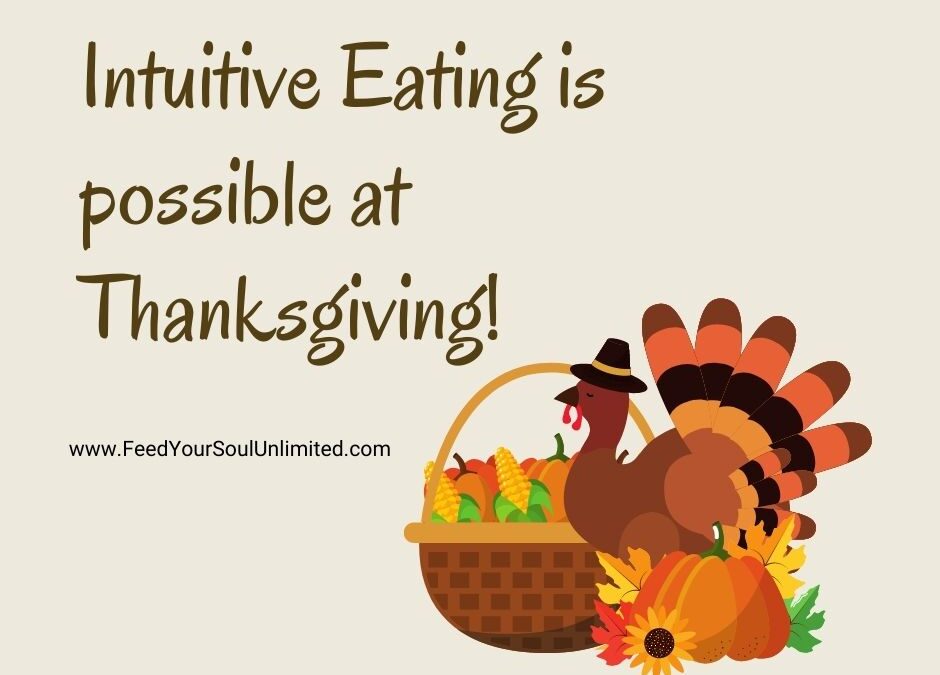
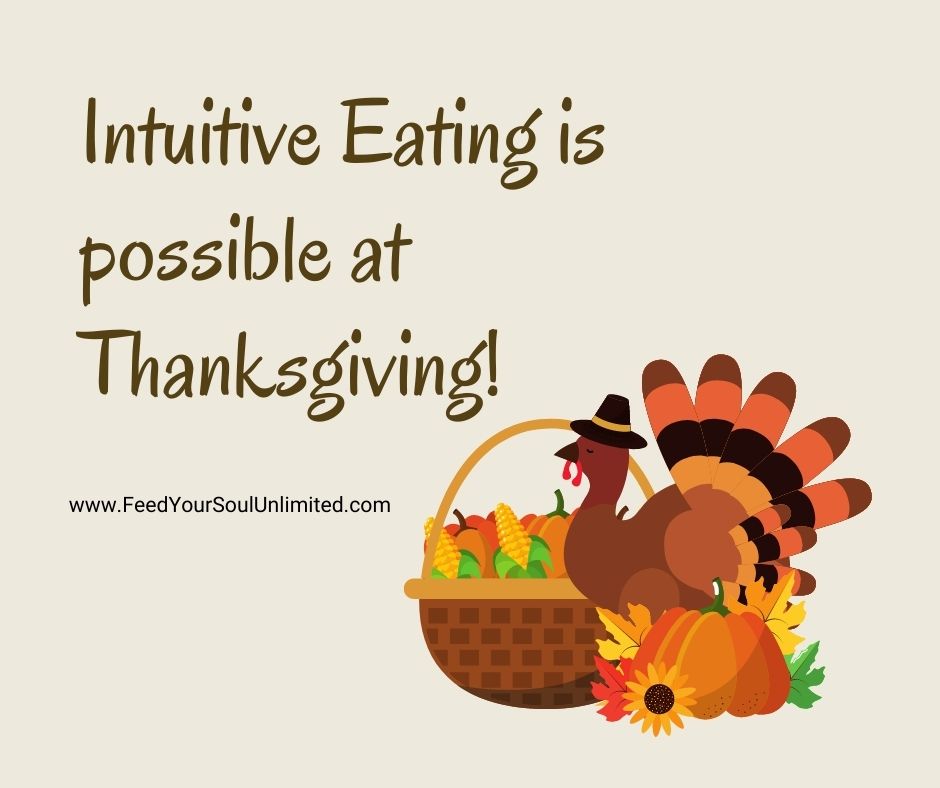
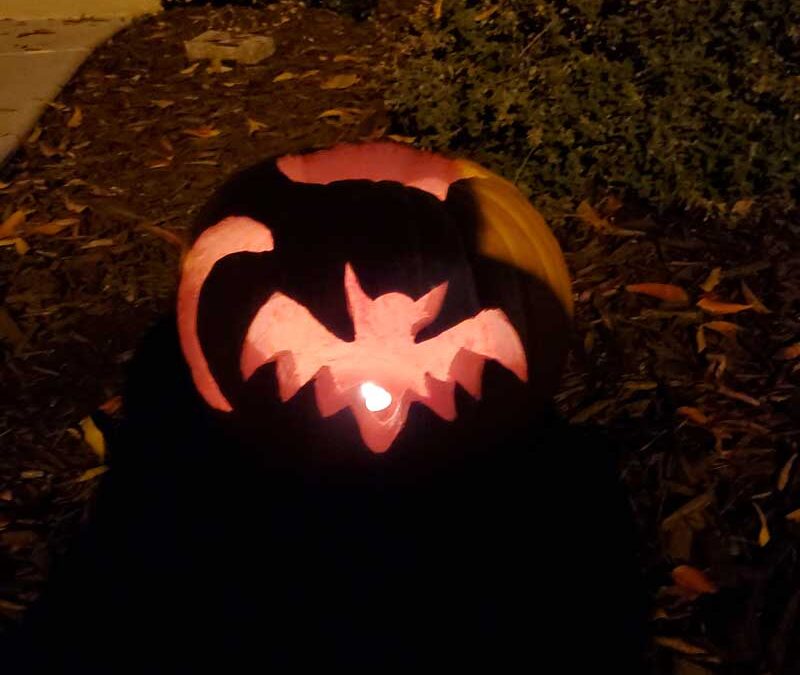
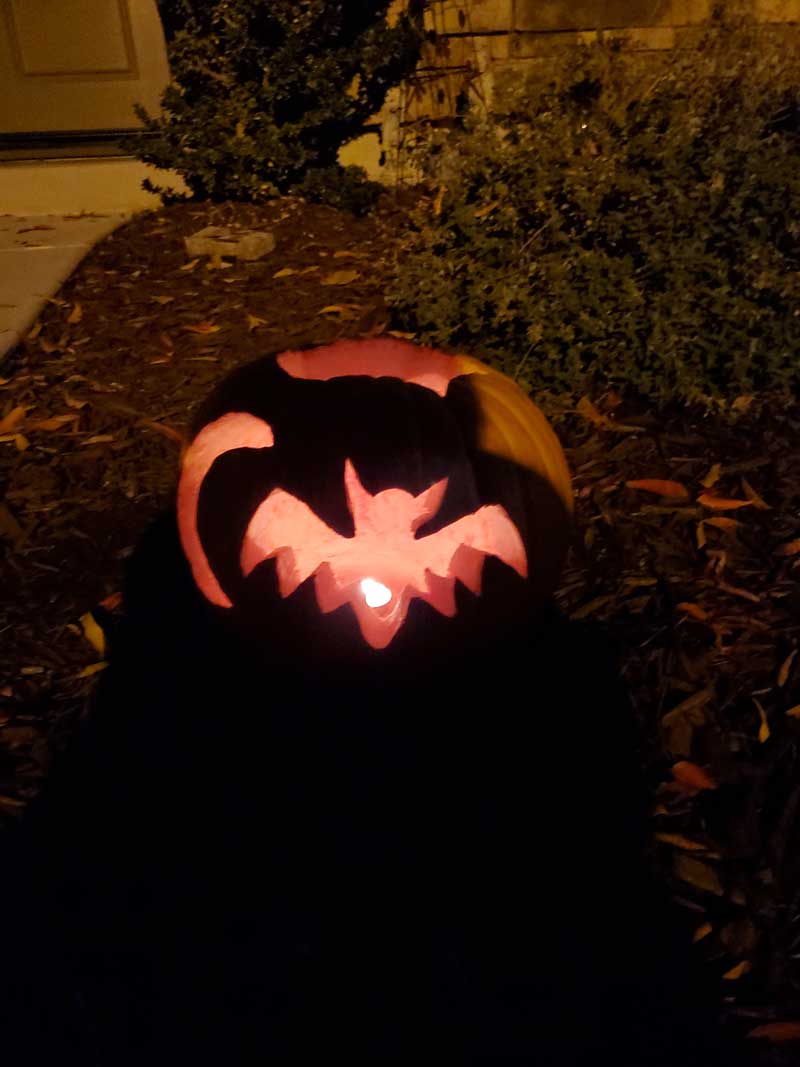

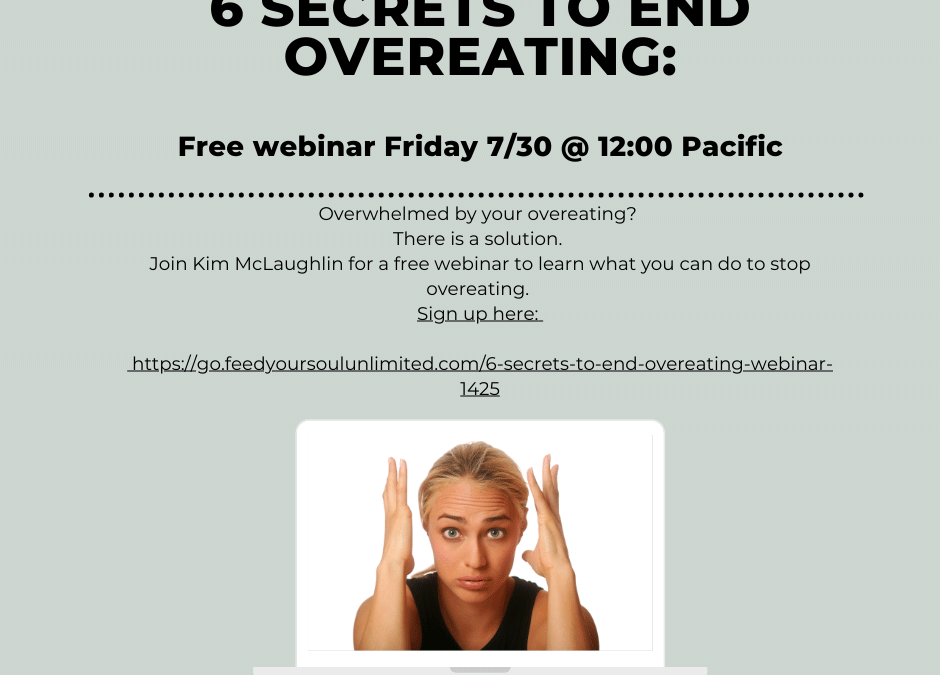
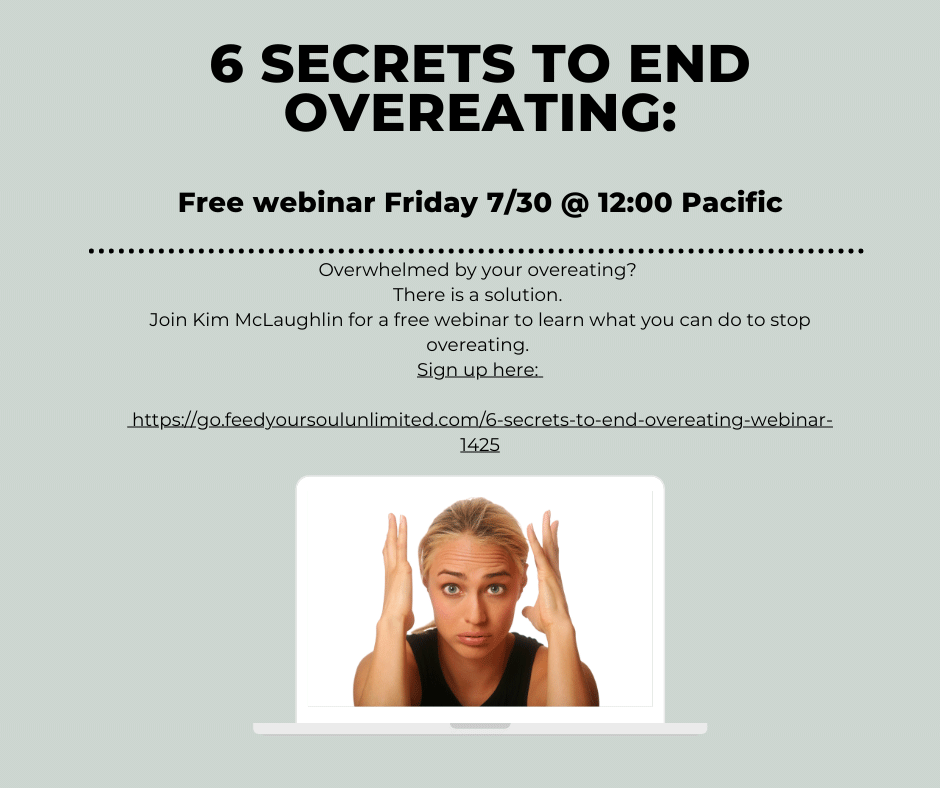
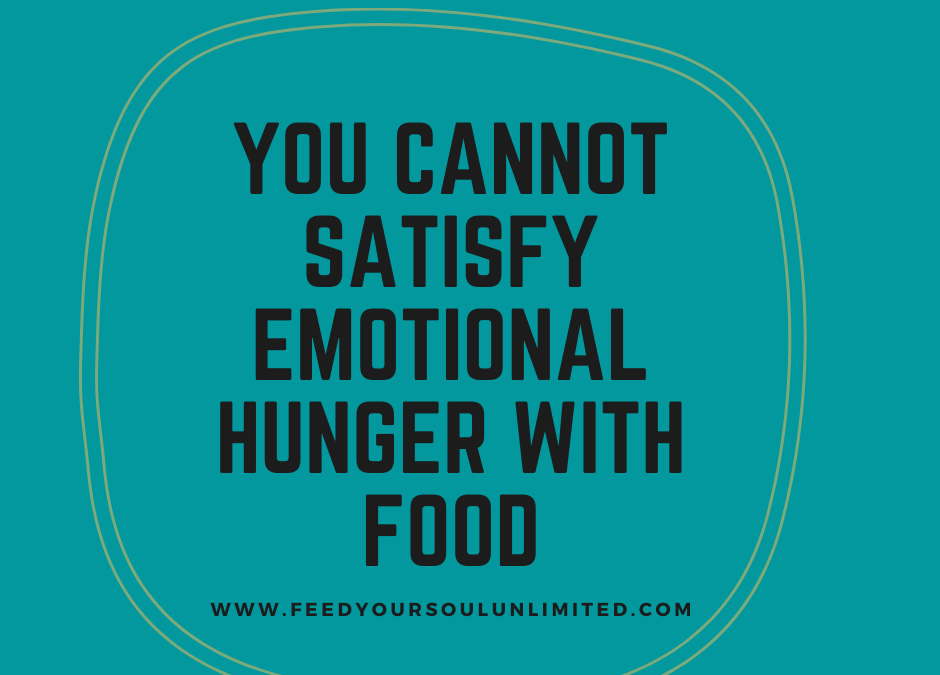
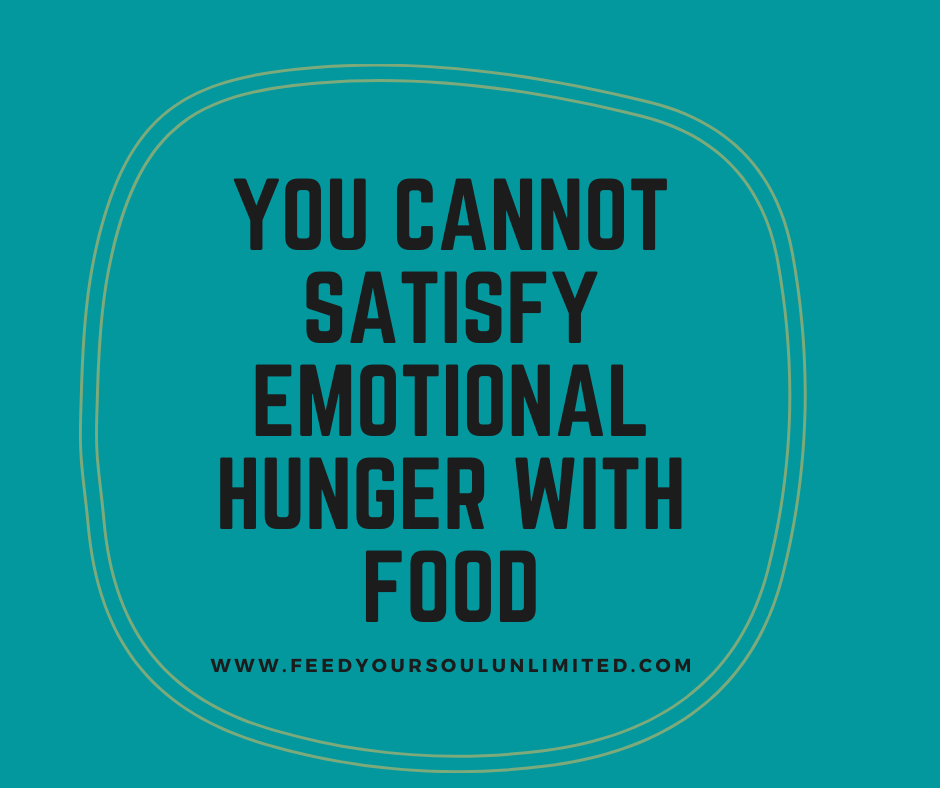 Interestingly, when I talk to people about emotional eating, initially they do not think they are an emotional eater.
Interestingly, when I talk to people about emotional eating, initially they do not think they are an emotional eater. 
